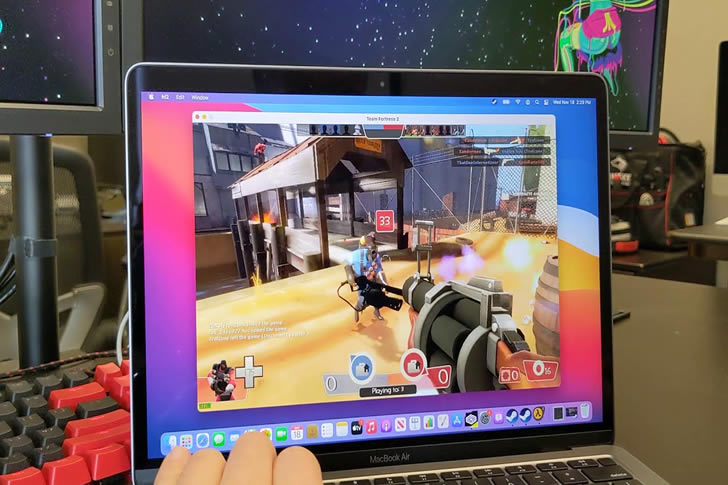5 Ways MAC is Ready to Dominate Gaming, Even Against Windows
In recent years, Apple has been striving to enhance the performance of Mac computers as a gaming platform. While traditionally considered inferior to Windows for gaming, recent advancements in hardware and software have made Macs a more viable option for gamers.

One significant change has been the introduction of Apple Silicon chips, which provide a substantial performance boost compared to previous Intel-based Macs. The new M1 chip, for instance, has proven to outperform many high-end Windows laptops in benchmarks. This has reignited the focus on gaming on Macs, prompting Apple to introduce several new features aimed at improving the gaming experience.
Mac gaming is now ready to challenge Windows, thanks to the introduction of Game Mode, available on macOS Sonoma. Game Mode is designed to optimize the Mac’s performance specifically for gaming. When activated, it prioritizes the game over everything else, ensuring that the Mac’s resources are dedicated to delivering the best gaming experience possible. This includes reducing Bluetooth latency for AirPods, doubling the Bluetooth sample rate for PlayStation and Xbox controllers, and giving higher priority to the Mac’s GPU and CPU, resulting in more stable and smoother frame rates.
Another crucial feature for Mac gaming is the Game Porting Tool, based on the popular open-source platform Wine. This tool allows developers to bring their PC games to Mac with minimal effort. The Game Porting Tool can also translate the Windows DirectX 12 API, used for graphics rendering and audio in games, into Apple’s Metal 3 graphics technology, enabling games to run natively on macOS with optimized performance.
Apple actively encourages developers to create native versions of their games specifically for macOS, rather than simply running translated versions of Windows games. While some games can run without code changes, Apple claims that native versions offer significantly better performance, with nearly doubled frame rates compared to similar hardware. Developers can utilize the tools provided by the macOS Sonoma SDK to convert DirectX graphics to Metal and take advantage of other native system features, such as support for game controllers, spatial audio, and HDR video.
All of these features are part of Apple’s broader effort to make Mac a more appealing platform for developers and gamers. With the release of macOS Sonoma, Apple aims to demonstrate that Macs are ready to surpass Windows even in the gaming world. However, there are still challenges that Apple needs to address.
One major challenge is that many game developers still prioritize Windows as their primary platform, resulting in many popular games not being available on Mac or being released much later than their Windows counterparts. However, Apple’s Game Porting Tool and other features may facilitate the process of bringing games to Mac, potentially bridging this gap.
Another challenge lies in the fact that many gamers prefer to build their own gaming PCs or purchase high-end gaming laptops. While Mac hardware has significantly improved in recent years, it still lags behind some of the top gaming laptops available in the market. Consequently, some gamers may still prefer Windows-based systems for gaming.
Despite these challenges, Apple’s efforts to enhance Mac’s gaming capabilities are undoubtedly a step in the right direction. With the release of macOS Sonoma and the introduction of new hardware like the M1 chip, Macs are becoming a more attractive platform for gamers. While it may not yet rival Windows as a gaming platform, Apple is clearly making progress in this area, and Macs are ready to compete with Windows even in the realm of gaming.
